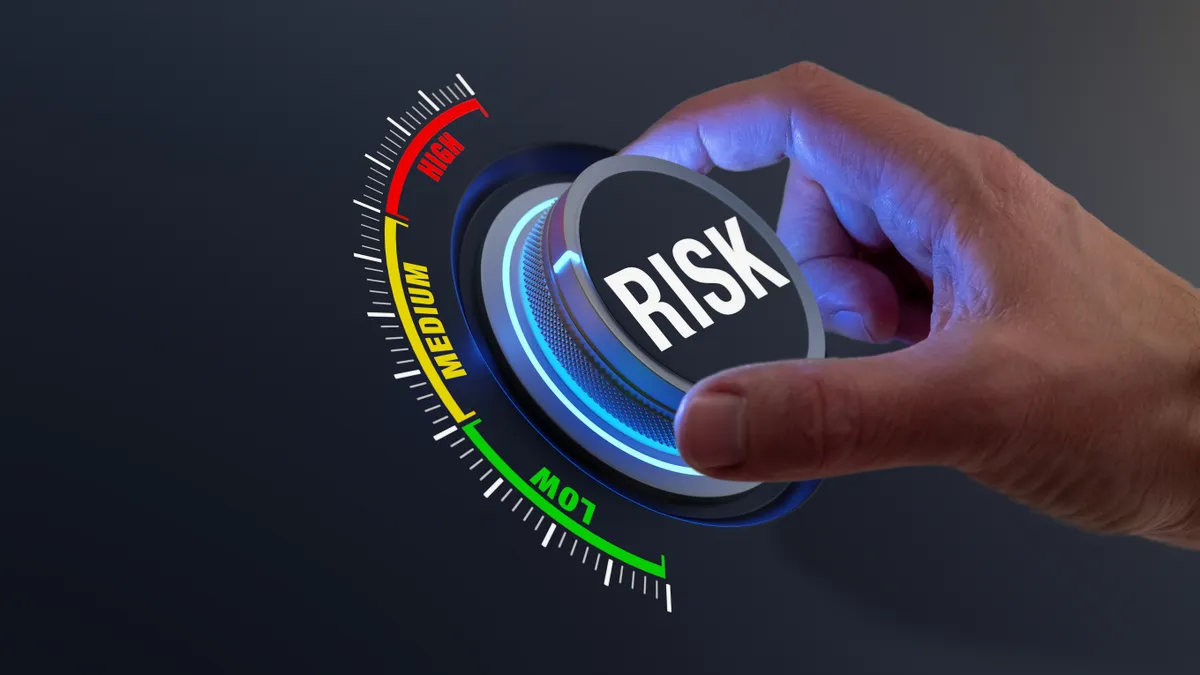Dive Brief:
- Across regions, less than half of business executives surveyed rated their companies’ approach to risk-management as “mature” or “robust,” with 41% in Asia/Australia, 31% in Europe/U.K., 29% in the U.S. and 26% in Africa/Middle East, respectively, assessing their firm’s risk readiness as strong.
- At the same time, a majority (60%) of respondents said corporate risk has increased in the past five years,according to a report from the Association of International Certified Professional Accountants (AICPA), the Chartered Institute of Management Accountants (CIMA) and North Carolina State University’s Enterprise Risk Management Initiative.
- In today’s increasingly complex risk environment, it pays for companies to adopt a formal enterprise risk management (ERM) methodology in order to identify, assess and prepare for potential losses, dangers, and hazards that my interfere with operations, a press release on the the report asserts. “As the speed of change continues to accelerate, organizations with robust processes for identifying and managing emerging risks can leverage this knowledge and capability into opportunities for strategic advantage, leaving competitors to be unexpectedly blindsided by risks that arise,” the report states.
Dive Insight:
The report comes as finance leaders have faced intense pressure to continually recalibrate strategies as the pandemic, the war in Ukraine and accelerated changes in the cost of goods, wages and interest rates have whipsawed plans. Confidence among CFOs and accountants across North America plunged to a record low during the second quarter as inflation flared to a 40-year high and the Federal Reserve aggressively cut monetary stimulus, according to a survey reported by CFO Dive.
But even prior to the pandemic “business leaders have sensed an overwhelming volume and complexity of risks impacting their organizations,” Mark Beasley, a KPMG professor of accounting and director of the ERM Initiative at NC State stated in a press release on the report. Globally organizations are “realizing their current approach to risk oversight may be insufficient,” he stated.
The report cited a number of barriers that may be limiting leaders’ progress toward better risk management. For example, most companies have trouble integrating their risk management and strategic decision-making activities which can lead to the perception that it doesn’t provide a competitive advantage, according to the report. In addition, most organizations do not include risk management responsibilities in performance compensation plans and less than one-third of the organizations have provided any formal training and guidance on risk management.
The Managing the Rapidly Evolving Risk Landscape Report of September 2022 surveyed 747 executives in four geographic regions. About half of the respondents held senior accounting and finance roles with the others representing a range of management positions in varied industries and a majority of the companies had annual revenues at or below $500 million.














